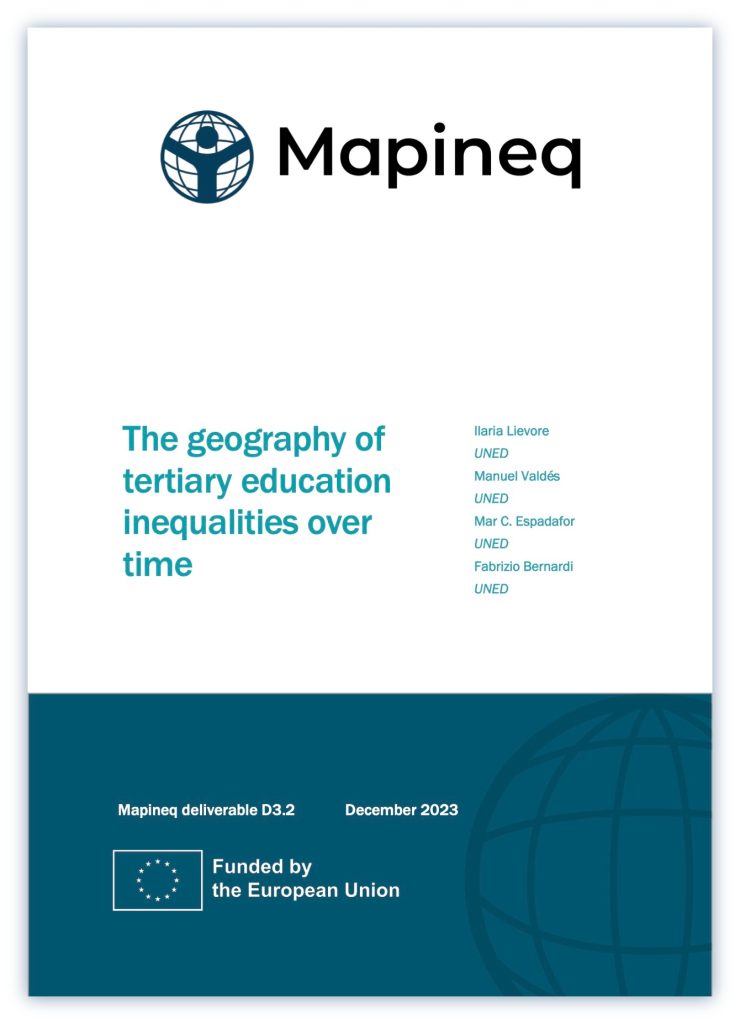The geography of tertiary education inequalities over time
This study explores the geography of social inequality and intergenerational mobility in European tertiary education attainment. Analysing data from the European Social Survey (waves 1-10), this study aims to describe the potential role of national as well as regional and sub-regional contexts in shaping individual tertiary education opportunities. Results show substantial cross-country disparities, as well as a sharp divide in inequalities in tertiary education attainment within European countries. In parallel, we observe a general decline in educational inequalities over time, even if this decline is not followed by a convergence in the levels of Inequalities in Educational Opportunities (IEOs) across countries: the differences in educational inequalities between countries remain stable over time, and European countries show great variation in their trends of inequalities in tertiary education attainment over time.
By Ilaria Lievore, Manuel T. Valdés, Mar C. Espadafor and Fabrizio Bernardi.

Persistence of IEO. Across countries, within regions, and over time, individuals whose parents did not obtain a tertiary education degree are less likely to obtain a tertiary education degree compared to individuals whose parents obtained at least one tertiary education degree. We uncover an interesting common pattern: 1 in 3 individuals whose parents obtained a tertiary education degree are not able to attain the same educational level.

Overall decline of IEO across cohorts. Over time, there is an average notable decrease in educational disparities concerning tertiary educational attainment across European countries, indicating a trend toward a more equitable distribution of educational inequalities.However, this average decline of IEO is not followed by a convergence between countries, and this is explained by a great variation in IEOs trends across European countries.

The importance of local context.The findings underscore the importance of considering (sub)regional and local environment for explaining intergenerational mobility and social inequality, especially considering tertiary education attainment. This result highlights the need for targeted policies that address also (sub)regional disparities in education, rather than focusing mainly on country differences.

